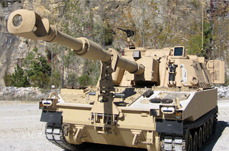WASHINGTON, March 9, 2012 — The Pacific will be a growing focus for the American military in the years to come, but the Middle East also must remain a priority, Defense Secretary Leon E. Panetta said in Hawaii yesterday.
The secretary is in Honolulu to preside at today’s change-of-command ceremony for U.S. Pacific Command. Navy Adm. Robert F. Willard will pass command of the largest U.S. combatant command to Navy Adm. Samuel J. Locklear III.
In a meeting with local reporters, Panetta addressed the importance of the Asia-Pacific region to the United States, but also fielded questions on Iran and Syria. “As we emphasize and focus on the Pacific and the region, this will remain a very important command and base, and we will continue to emphasize this region,” the secretary said.
Panetta also emphasized that this is a historic time for the Defense Department.
“We’re at a turning point after 10 years of war,” he said. “We’ve ended the mission in Iraq, and we’ve turned a corner in Afghanistan. We still have a war there, but I think we are on a better path toward transition in Afghanistan.”
U.S. forces participated in NATO operations that removed Moammar Gadhafi from power in Tripoli and gave Libya back to the Libyan people, he noted. “On terrorism,” he added, “we’ve scored significant success against the leadership of al-Qaida, although terrorism itself remains a threat.”
These successes must be viewed through the prism of economic difficulties, Panetta said. The United States is facing severe budget problems with record deficits and record debt, and Congress has mandated cutting $487 billion from the defense budget over the next 10 years.
“This happens at a time when we face some significant threats in the world,” he said. “We’re still fighting a war, we are still confronting terrorism. We have threats from Iran and from North Korea. We have the Middle East in turmoil, we have rising powers in the Pacific, and we have the threats of cyber war.”
President Barack Obama directed the Pentagon to develop a new defense strategy, Panetta told reporters, and leaders used this new guidance to make budget decisions. The strategy is the basis for building the force needed for the future, and the shifting of focus to the Pacific, he said. And the strategy puts the military on the right path while still doing the Defense Department’s part to solve the deficit crisis, he added.
The military will become a smaller and leaner force, Panetta said, but it will be more agile, quickly deployable and technologically advanced under the new strategy.
“Part of our strategy was to emphasize our presence in the Pacific and the Middle East,” he said. “We are a Pacific power, and we will remain one.”
The United States maintains forces in the Pacific “because we believe this is an important area economically, militarily, strategically and in terms of the allies that we have in this region,” the secretary said. But even in the middle of the Pacific, the Middle East still is a concern, he added.
Reporters asked Panetta about U.S.-Israeli cooperation on Iran. U.S. and Israeli leaders have discussed Israeli missile defense, and the two countries continue a very close military relationship, he said. U.S. and Israeli leaders held a series of discussions in the past week, the secretary noted. Iran obviously was a matter discussed at the highest levels, he said, and the United States understands Israeli leaders must make decisions they believe are in their country’s best interests, and America will do the same.
“When it comes to Iran, we have common cause against Iran, [and] we have the same concerns as Israel with regards to [Iran] obtaining a nuclear weapon,” the secretary said.
The United States has made it clear that a nuclear Iran is not acceptable, Panetta said.
“We are going to prevent them from obtaining a nuclear weapon,” Panetta said. “We are also going to ensure they are not going to close the Straits of Hormuz.”
U.S. leaders believe sanctions against Tehran are working, the secretary said. “We think diplomacy and holding the international community together to apply that pressure needs to continue and that’s the right way to go right now,” he added. “We hope Israel will continue to be part of that international effort.”
Source:
U.S. Department of Defense
Office of the Assistant Secretary of Defense (Public Affairs)

 von
von 